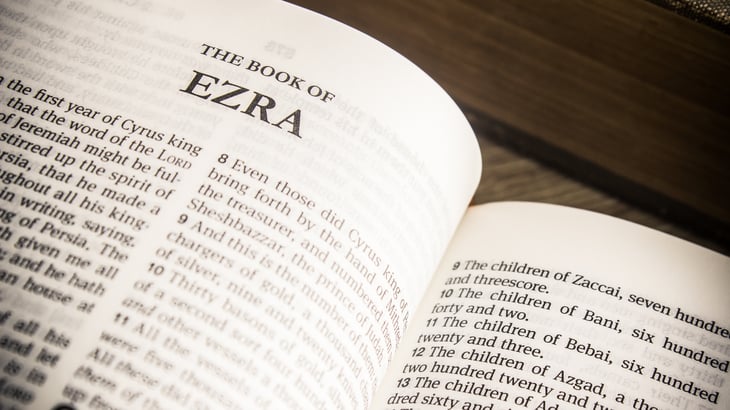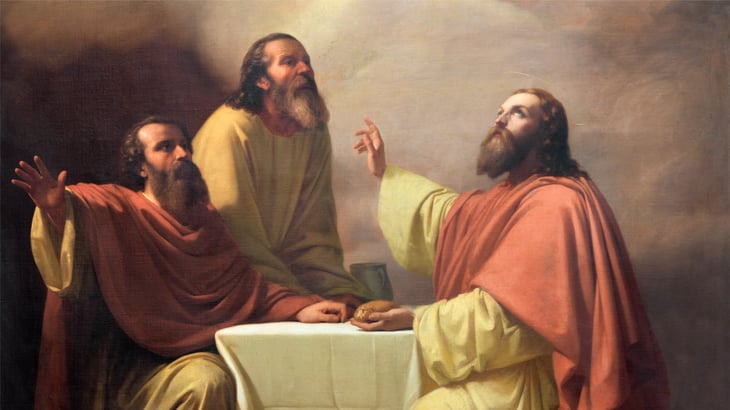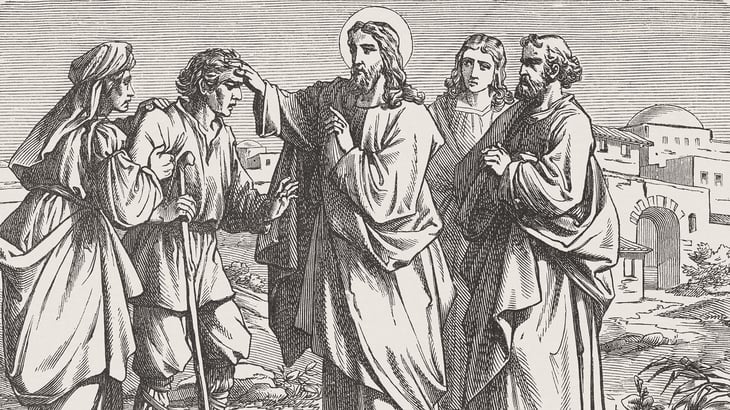Israel’s Story in Ezra
The following is an excerpt from volume 1 of The Lutheran Bible Companion on the happenings in Israel during the time of Ezra.
Our Advent Prayer: Come, Lord Jesus
Advent is upon us! It is a time of waiting, a time of hope, a time of preparation, a time of prayer. The prayer of the Church throughout each and every Advent season is this: “Come, Lord Jesus.”
Digging Deeper into Scripture: Mark 13:24–37
In this passage, Christ alludes to the end times and His second coming on Judgment Day. He also asserts that it is only the Father who knows when this day will come. He does all this in Jerusalem, just before Holy Week.
The Holy Spirit in Chronicles
The following is an excerpt from volume 1 of The Lutheran Bible Companion on the action of the Holy Spirit in 1 Chronicles and 2 Chronicles.
Doers of the Word in James
In Dr. Curtis Giese’s Commentary on James, Giese gives particular attention to James’s meaning in his use of specific words, including “faith,” “justification,” “Law,” and “Gospel.” In this excerpt, Giese looks at the implication and meaning of “doers” and “Word” in James 1:22.
Church Worker Appreciation in the Bible
October is Church Worker Appreciation month. I know many congregations throughout the world have been showing their pastors, deaconesses, DCEs, musicians, and other church workers much appreciation this month through gifts, prayers, encouraging words, and much more. As this month comes to a close, I thought it would be worthwhile to look at a few examples in the Scriptures where God’s prophets and apostles, and Jesus Himself, receive appreciation or a lack of appreciation. Perhaps as we follow them in service to God and neighbor, we can learn something from these examples.
Digging Deeper into Scripture: Mark 10:46–52
This passage marks a turning point in Jesus’ ministry. He completes His work in Judea and Perea and moves toward Jerusalem, where our Lord will make His triumphant entry and begin Passion Week, culminating in the cross.
Elijah: God’s Prophet to the Kings of Israel
Throughout the Old Testament—and especially in the Books of 1 and 2 Kings—God works through prophets to call Israel and her kings back to Him and rebuke their unbelief. The following excerpts from The Lutheran Bible Companion feature one of these instances: the encounters of Ahab and Elijah.
Why Will the World End?
This blog post is adapted from Johann Gerhard’s Theological Commonplace On the End of the World and On Hell, specifically Gerhard’s notes on the reasons for the end of the world.
The Lutheran Legacy of Resistance
The following is an excerpt from Wade Johnson’s essay “We Must Obey God Rather Than Men: The Lutheran Legacy of Resistance” in One Lord, Two Hands? Essays on the Theology of the Two Kingdoms, a new anthology edited by LCMS President Rev. Dr. Matthew Harrison and Rev. Dr. John T Pless.





















